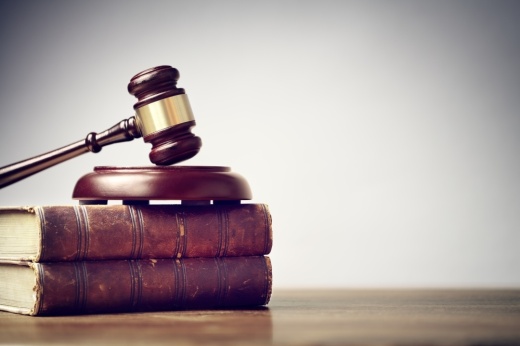On July 22, the U.S. Department of Justice announced it will open an environmental justice investigation into the city of Houston for its practices related to illegal dumping.
According to the July 22 news release, the investigation will be led by the Civil Rights Division with the support of the U.S. Attorney’s Office for the Southern District of Texas. It will involve examining the city’s municipal service response to illegal dumping, which allegedly discriminates against Black and Latino residents.
Specific departments being investigated include the Houston Police Department, the city’s 311 system, the Solid Waste Management Department and Houston’s Department of Neighborhoods.
“Illegal dumpsites not only attract rodents, mosquitos and other vermin that pose health risks, but they can also contaminate surface water and impact proper drainage, making areas more susceptible to flooding,” said Kristen Clarke, assistant attorney general of the Justice Department’s Civil Rights Division, in the release.
The scope of the investigation will include an examination of the city’s enforcement and solid waste management policies and practices in relation to illegal dumping that could have resulted in discrimination that is in violation of Title VI of the Civil Rights Act of 1964. According to the release, Title VI “prohibits recipients of federal financial assistance from discriminating on the basis of race, color or national origin.”
According to a separate statement from Clarke, the investigation was prompted by a complaint to the Justice Department from Lone Star Legal Aid, with a focus on neighborhoods in Northeast Houston, such as Trinity/Houston Gardens Super Neighborhood 48. The complaints allege illegal dumping of household furniture, mattresses, tires, medical wastes, trash, dead bodies and vandalized ATM machines, among other items dumped and abandoned, Clarke said.
In the official complaints Lone Star Legal Aid filed on behalf of Super Neighborhood 48, it is said that the city denied the neighborhood necessary city services to "improve the overall quality of life," as well as devalued homes through its failure to provide adequate drainage infrastructure, concentration of industrial activities and waste sites, absence of code enforcements and deprived the neighborhood of key resources needed to sustain the area.
“The complaint alleges that the city’s denial of services; failure to enforce municipal codes and permit restrictions; and failure to adequately and equitably respond to illegal dumpsite concerns and service requests threaten the health and safety of Black and Latino people in Houston,” Clarke said. “These alleged acts also devalue the real property of Black and Latino Houstonians in violation of Title VI.”
According to a Jan. 25 press release from Lone Star Legal Aid, the city's lack of zoning laws has directly affected the neighborhoods, exacerbating their problems. Residents said the lack of zoning laws has left the neighborhood vulnerable to the development of property owners, such as chemical processing plants and concrete batch plants.
According to the complaint, Super Neighborhood 48 residents would like to see park upgrades, an increase in city services and employees, creation and enforcement of ordinances, regulations and programs, infrastructure improvements and economic developments.
Prior to the announcement, the city of Houston’s mayor’s office and legal department were made aware by the department of the investigation's initiation, the release said.
However, in a July 22 statement released from Mayor Sylvester Turner, he said his office did not have prior knowledge of the investigation.
“This morning, the city of Houston was stunned and disappointed to learn about the investigation into illegal dumping by third parties launched by the U.S. Department of Justice,” Turner said in the statement. “Despite the DOJ's pronouncements, my office received no advanced notice. This investigation is absurd, baseless and without merit.”
According to Turner’s statement, the city has actively prioritized and used measures to combat illegal dumping in Houston, and he agrees it “disproportionately plagues Black and Brown communities in Houston and many municipalities throughout the country.”
Turner said that, since day one in office, he has helped under-resourced and underserved communities in Houston, calling the investigation a “slap in the face” to the city. In 2021, the city doubled the fine for illegal dumping from $2,000 to $4,000—the maximum allowed by state law, he said. To further combat illegal dumping, the city of Houston also implemented surveillance cameras to catch criminals who are engaging in the activity.
“The city follows up on 311 complaints about illegal dumping and aggressively pursues those responsible for illegally discarding debris on public or private property without the owner's consent,” Turner said. “Houstonians can call 311 directly or submit a report of illegal dumping to 311 online, and all illegal dumping reports are routed directly to the city's Solid Waste Management Department for action.”
However, according to the Jan. 25 press release, residents of the affected area said the city addresses the problem at a "leisurely rate."
Turner also mentioned another ongoing investigation—the alleged cancer cluster in Kashmere Gardens—an investigation he said the DOJ has stayed silent on.
“We have taken legal steps to advocate for people living in [this] community with no help from the DOJ,” Turner said.
According to Turner’s statement, the city will cooperate with the DOJ and expects that no discrimination will be found once the investigation is complete. U.S. Rep. Al Green said in a statement that his office is committed to assisting Houston with its illegal dumping issue. Green said he fully supports the city and Turner’s efforts to “ensure all Houstonians live in a safe and healthy environment.”
“We believe the city of Houston's proactive measures to address environmental health and safety issues by leveraging public and private resources should be acknowledged instead of vilified,” Turner concluded. “We welcome the DOJ's support in that effort.”





